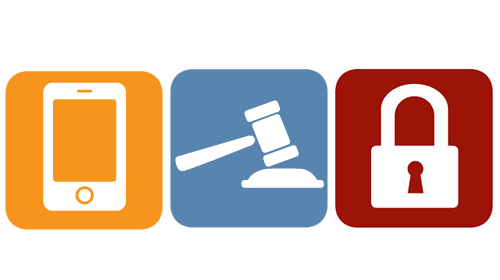ACLU Seeks Secret Court Opinions Authorizing NSA's Mass Acquisition of Americans' Phone Records


The ACLU and Yale Law School's Media Freedom and Information Access Clinic filed a motion today with the Foreign Intelligence Surveillance Court (FISC), seeking the release of secret court opinions that permit the government to acquire Americans' phone records en masse. The public has a right to know the legal justification for the government's sweeping surveillance—but, until now, those judicial opinions have remained a heavily guarded secret.
The ACLU filed its motion on the heels of last week's disclosure of an order, issued under Section 215 of the Patriot Act, compelling a Verizon subsidiary to turn over call details for every domestic and international phone call placed on its network during a three-month period. Since then, media reports and statements by members of the congressional intelligence committees have made clear that this order belongs to a much larger surveillance program—covering all the major telephone companies—that has been in existence for the past seven years. When pressed about the program, members of Congress as well as executive officials have emphasized that this mass acquisition of Americans' phone records was reviewed and approved by judges on the FISC.
Section 215 of the Patriot Act allows the director of the FBI to obtain secret court orders from the FISC compelling third parties to produce "any tangible thing" relevant to foreign intelligence or terrorism investigations. The orders are accompanied by a gag order forbidding recipients, like Verizon, from disclosing that they even received a demand for records. As a result, Americans know very little about the authority the government has claimed under Section 215 and the extent of the records acquired by the government under these orders.
But after last week's disclosures, we now know more about this surveillance program—and what we learned has been deeply troubling. Indeed, the fact that the FISC has allowed the government to demand the call details of all Verizon Business customers, and probably those of millions of other telephone subscribers, raises more questions than it answers. For instance, how could all phone records be "relevant" to authorized foreign intelligence or terrorism investigations, as the law requires for the government to demand these records? Likewise, why doesn't the government's seizure of such an immense amount of personal information, belonging to millions of innocent Americans, violate the Fourth Amendment, which protects against unreasonable invasions of privacy? How can Section 215 authorize such a vast and intrusive surveillance program, when almost no one understood at the time Congress passed the law that it had handed this sweeping power to our government?
The FISC's legal opinions presumably shed light on these pressing questions and others. The public is entitled to know the legal basis for such a program and the legal interpretation of Section 215 that supports the government's demand for a complete log of all our phone calls. As the ACLU lays out in its motion for release of these FISC opinions, the public has a First Amendment right to judicial opinions interpreting laws like Section 215. We can have an informed debate about the wisdom of this law only if we know what our courts have taken it to mean and why.
There is no question that these FISC opinions are critical to the public debate over government surveillance that last week's disclosures have sparked. The ACLU has been seeking the same FISC opinions through a Freedom of Information Act lawsuit for nearly two years, with the government stonewalling at every turn.
Now that the cat is out of the bag, public officials have rushed to defend the surveillance program, saying that it is court-approved and Americans only need to understand the safeguards that the government applies after storing this trove of phone records. President Obama himself stated on Friday that he "welcome[s] this debate" and thinks it's "good that we're having this discussion." Director of National Intelligence James Clapper complained that the disclosures "omit key information" about the program, and declared that "it is important for the American people to understand the limits of this targeted counterterrorism program and the principles that govern its use." Unfortunately, officials seem to believe that the public's understanding should be based only on information the government selectively releases. Needless to say, this debate has come much too late, as a direct result of the government's secrecy—but the ACLU agrees that the public deserves to know much more.
The release of these FISC opinions is the first step to an informed public discussion of the surveillance powers asserted by the government. It should not be able to shield such a radical and unprecedented intrusion on Americans' privacy behind a secret court issuing secret legal interpretations of our laws.
Learn more about government surveillance and other civil liberty issues: Sign up for breaking news alerts, follow us on Twitter, and like us on Facebook.
Stay informed
Sign up to be the first to hear about how to take action.
By completing this form, I agree to receive occasional emails per the terms of the ACLU's privacy statement.
By completing this form, I agree to receive occasional emails per the terms of the ACLU's privacy statement.

